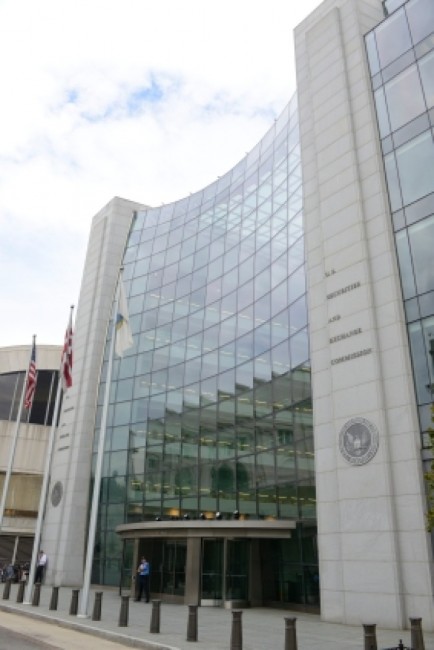-
Read more
Just when government whistleblowers hoped retaliation was on the decline following the passage of the Whistleblower Protection Enhancement Act, there appears to be a 2.0 version out, and it’s coming with a vengeance. The latest wave in retaliation comes in the form of criminal investigations lodged by government agencies against truth-telling employees. Rather than risk detection with a baseless termination or demotion, these employers have increasingly begun to wage criminal investigations, said Tom Devine, legal director for the Government Accountability Project in an interview with Government Executive. Devine stated that such actions are a scary, dangerous trend, and that forcing someone out of a government position through criminal investigations could forever damage the employee’s prospects for future employment.
NYG Capital LLC made two headlines this week when a former intern accused its CEO, Benjamin Wey, of sexual harassment and wrongful termination, among other things. The plaintiff, Hanna Bouveng, a Swedish native, was working in the US on a J-1 visa when the alleged actions took place. Upon her termination, Bouveng alleges that Wey continued to stalk, harass and malign her reputation. Meanwhile, as also reported by Law 360, a former graphic design artist was terminated shortly after cooperating with attorneys investigating Bouveng’s charges against Wey. Yonatan Weiss lent credence to Bouveng’s accusations and claims he was fired for being truthful during interviews on the subject.
-
Read more
We at Suits by Suits are so excited by American Apparel’s dispute with its recently-fired CEO and founder Dov Charney that we can barely keep our shirts on. After all, the dispute between the clothing manufacturer and its controversial former leader is bursting at the seams with takeaway points for feuding companies and C-suite employees (and those wanting to avoid having feuds). For example, as we described in an earlier post, the dispute illustrates that terminating a key company officer may jeopardize company financing. The dispute also presents the question: can a company like American Apparel, which knew that Charney was apparently known for not being able to keep his pants on, decrease its exposure to the inevitable sexual harassment lawsuit by having all of its employees acknowledge in writing that the company’s workplace is sexually charged? It depends.
-
 Read more
Read moreHarold “Skip” Garner is a tenured professor at Virginia Tech who makes $342,000 a year, according to an article in the Roanoke Times. Yet he is still suing university officials, including former president Charles Steger, for $11 million. Why?
He says that the officials violated his constitutional rights when they removed him from his position as Executive Director of the Virginia Bioinformatics Institute (VBI). In his complaint, available here, he claims that he was demoted without “advance notice of his removal or demotion” and without any “opportunity whatsoever to contest the merits of the action.” He alleges that this lack of procedural protections “deprived [him] of property and liberty without due process of law.” This kind of claim is known as a “Section 1983” claim: i.e., a claim brought under 42 U.S.C. § 1983, which provides a federal cause of action to individuals who are deprived of constitutional rights by the actions of state officials. In the employment context, Section 1983 claims can arise when state officials discipline employees without affording them notice and an opportunity to be heard. See, e.g., Ridpath v. Board of Governors Marshall University, 447 F.3d 292 (4th Cir. 2006). That’s the kind of claim Garner is alleging here.
-
Read more
Talk about your inter-family disputes: one federal agency – the Department of Labor – has filed suit against the United States Postal Service, an independent federal agency (but one of the few explicitly authorized by the Constitution). The reason for the federal lawsuit, filed in Missouri: the Postal Service’s alleged poor treatment, firing, and alleged harassment of an employee who claims he blew the whistle on safety hazards in a mail facility.
Here’s the background, delivered despite any contrary weather: Thomas Purviance worked for the Postal Service for 35 years, most recently as a maintenance supervisor at a mail distribution center near St. Louis. He had no record of disciplinary or performance issues. In late December 2009, Purviance complained to his supervisors about what he perceived to be carbon monoxide and fuel oil leaks from some of the equipment at the center, as well as a pile of oil-soaked rags which he thought was a safety hazard. Getting no response, Purviance eventually called the local fire marshal and made a 911 call to report the carbon monoxide leak.
-
Read more
We’re in the midst of summer and the news outlets are replete with anti-compete and whistleblower developments. But before we get to those, let’s turn our attention to China:
If the dog days of summer here in the U.S. aren’t sweltering enough, imagine what they must feel like in the bustling, smog-laden cities of China. The Wall Street Journal reports that Coca- Cola Co. offers “environmental hardship pay” to some employees as a condition for relocating to some of China’s cities. Ed Hannibal of the HR consulting firm, Mercer LLC, indicates that it is not uncommon for multinational companies to offer the extra pay to incentivize workers to relocate to polluted cities. It helps to offset severe living conditions and ensure the company’s continued presence on the ground.
These days it seems employers face an uphill battle to see non-compete agreements prevail in court. Recently, a Louisiana state court carefully examined the terms of a non-compete in Gulf Industries, Inc. v. Boylan (La. App. 1 Cir. June 6, 2014). The National Law Review reports that the employer in this case inserted a two year non-compete provision into a one-year employment contract. According to the Court, even though Boylan’s employment extended two years past the date specified in the employment contract, the non-compete provision kicked in when the one year employment term was satisfied. The employer sought to extend the non-compete, arguing that it did not take effect until Boylan resigned. The Court disagreed and held that the non-compete had run during Boylan’s continued employment with the company. Little did he realize at the time, but Boylan was quite the multi-tasker.
-
Read more
Firing a key executive can have repercussions beyond a severance dispute or a wrongful termination or discrimination claim by the executive. American Apparel’s recent termination of its CEO, Dov Charney, provides the latest example of the wide-ranging consequences that can arise when a C-level employee is let go. In American Apparel’s case, the consequences have included the threat of default on a $15 million loan and a resulting shareholder lawsuit.
How did this happen? According to the New York Post, when Lion Capital LLC lent American Apparel the $15 million, the two entered into a lending agreement that said American Apparel would be in default if it fired Charney. After American Apparel’s board told Charney it was going to fire him in 30 days, Lion Capital accelerated its demand for payment on the loan, threatening the company with bankruptcy. American Apparel argued in an SEC filing that it wasn’t in default because Charney was still technically CEO. However, it continued to work behind the scenes to remedy the situation. Now, the company now appears to have struck a deal with a hedge fund to save it from Chapter 11.
-
Read more
Happy 4th of July! While many Americans enjoy a festive day of parades, barbecues and fireworks, let’s see if this week’s highlights spark your interest:
- The American Apparel/Dov Charney feud seems set to implode as the parties fire missiles and missives at one another. According to Fortune, Mr. Charney requested a special shareholder meeting in an attempt to increase the number of sympathetic directors on the board while also reporting in a regulatory filing that he is working with investment firm Standard General to amass a controlling interest. Meanwhile, American Apparel responded by adopting a poison pill which would cap a shareholder or group of shareholders interest at 15 percent.
- Bloomberg reported that the former employees of Goldman Sachs, who have alleged gender bias in their suit against it, ignited a class certification request on Tuesday. In support of their motion, the plaintiffs argued that female vice presidents and associates were systematically paid and promoted less than their male counterparts in the investment banking, management and securities divisions since September 10, 2002.
-
 Read more
Read moreNo one likes to be wrong, and being proven wrong stinks. And that’s especially true for folks in my profession – we’re not known for being gracious losers.
But even worse than just being proven wrong is having to pay the other side what they spent to prove you wrong. This is a relatively rare thing in the United States: the “American Rule” means that each side pays its own attorney’s fees, unless a contract or statute shifts the winner’s fees to the losing party’s side of the ledger.
But those fees – over $200,000 of them – were shifted to the loser in Stuart Irby Co. v. Tipton, et al., an Arkansas case involving a non-compete clause that the plaintiff said prevented three of its former salesmen from going to work for another business in the electrical supply industry. As we’ve noted, Arkansas can be a tough place for businesses trying to enforce non-competes: for example, its courts won’t rewrite them for the parties if they’re overly broad or otherwise unenforceable.
-
Read more
On Thursday, even though the United States lost to Germany, they moved on from the Group of Death to take on Belgium in the World Cup round of 16. In honor of US Soccer’s achievement, we are glad to present this footy-themed edition of the Inbox.
- The New York Post continues to report on the controversy surrounding last week’s decision to terminate American Apparel CEO Dov Charney. In this piece, one of our editors achieved his goal of being quoted in that paper, although neither he nor Charney got a clever rhyming front-page headline.
- A New Jersey judge issued a red card to a shareholder lawsuit against Johnson & Johnson, tossing the case out on summary judgment. MassDevice.com reported that the judge decided that J&J acted in good faith when it decided not to claw back $40 million that had been paid to its former CEO, William Weldon.
-
 Read more
Read moreThe Securities & Exchange Commission gained significant new enforcement powers in the Dodd-Frank Act of 2010. Under the Act, the SEC can award bounties to whistleblowers who provide information leading to successful enforcement actions. It has already exercised this power, making eight whistleblower awards since starting its whistleblower program in late 2011. The Dodd-Frank Act also allows the SEC to sue an employer who retaliates against a whistleblower, but the SEC hasn’t previously taken that step.
Ten days ago, that changed. The SEC announced that it had charged Paradigm Capital Management and owner Candace King Weir with engaging in prohibited trades and retaliating against a head trader who reported the trades to the SEC, and that Paradigm and Weir had settled the charges for $2.2 million. Without its new enforcement authority under Dodd-Frank, the SEC wouldn’t have been able to bring the retaliation charge.
According to the SEC’s press release, Paradigm “removed [the whistleblower] from his head trader position, tasked him with investigating the very conduct he reported to the SEC, changed his job function from head trader to a full-time compliance assistant, stripped him of his supervisory responsibilities, and otherwise marginalized him.”
The formal order issued by the SEC further describes what happened to the whistleblower. The day after the trader told Paradigm that he had reported these particular trades to the SEC, Paradigm removed him from his position. The trader and Paradigm tried to negotiate a severance package, but when that fell through, Paradigm brought him back to investigate trades and work on compliance policies – but not to resume his head trading responsibilities.
As the regulatory and business environments in which our clients operate grow increasingly complex, we identify and offer perspectives on significant legal developments affecting businesses, organizations, and individuals. Each post aims to address timely issues and trends by evaluating impactful decisions, sharing observations of key enforcement changes, or distilling best practices drawn from experience. InsightZS also features personal interest pieces about the impact of our legal work in our communities and about associate life at Zuckerman Spaeder.
Information provided on InsightZS should not be considered legal advice and expressed views are those of the authors alone. Readers should seek specific legal guidance before acting in any particular circumstance.
Contributing Editors

John J. Connolly
Partner
Email | +1 410.949.1149

Andrew N. Goldfarb
Partner
Email | +1 202.778.1822

Sara Alpert Lawson
Partner
Email | +1 410.949.1181

Nicholas M. DiCarlo
Associate
Email | +1 202.778.1835




